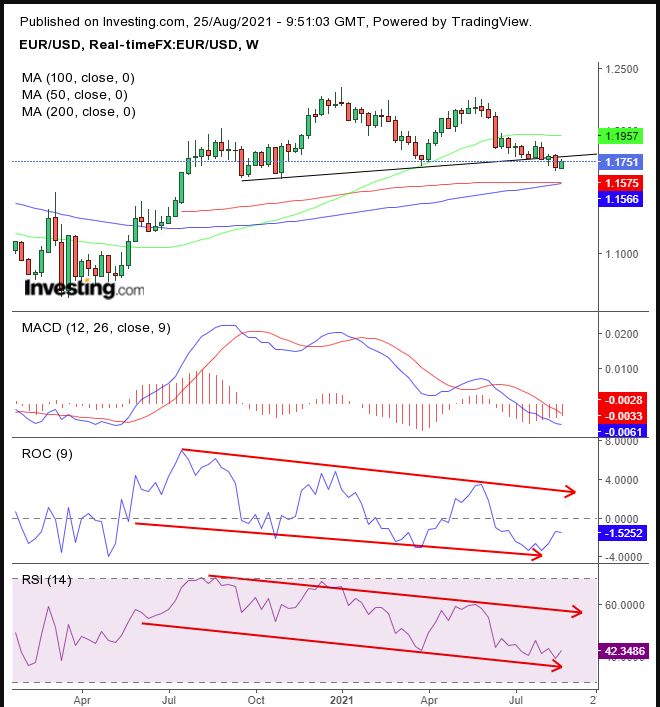Since its early January peak, the euro has been trading about 5% lower. The single currency is being pressured by conflicting market themes—its status as a save haven asset versus the outlook for higher interest rates.
As such, the EUR/USD pair finds itself sandwiched between two opposing forces. When uncertainty about economic development rises, demand for havens increases as well; whereas rates tend to accelerate on economic improvement.
The US dollar has been enjoying its status on both sides of these oppositional views, causing the greenback to rally. But will it last?
That depends on who you ask. DoubeLine Capital's billionaire bond investor Jeffrey Gundlach thinks current US policy, in which the goverment gives away free money that US consumers use to support Chinese goods—thereby boosting the Asian nation's economy at the expense of the US's—could eventually hurt the greenback's standing as the global reserve currency. And that position is the main reason for the current dollar strength.
While that may be true, it is a long-term view. Shorter-term, Goldman Sachs analysts have increased their expectations that the Fed will announce it is tapering its asset buying program this weekend, at the Jackson Hole Symposium. Should that occur it would add to the contrast between the US central bank's hawkish position relative to that of the European Central Bank which has already put the common currency at a nine-month low on interest rate differentials and divergent policy.

The euro just completed a massive, year-long H&S top. It's already cut through the 50-week MA, and the 200-week MA is threatening to fall below that of the 100-week MA. In July, the 50 DMA crossed below the 200 DMA, triggering a Death Cross.
Multiple indicators have been providing negative divergences—including price and momentum-based oscillators—which is very rare. The Moving Average Convergence Divergence (MACD), has been converging, a sign of the signal's strength. In addition, both the ROC and RSI—two momentum based negative measurements, but with different calculations—have been falling against rising prices.
Trading Strategies
Conservative traders should wait for the price to fall below 1.1600, then rally on dip-buying, which will prove short-lived as supply increases again as the dollar nears the H&S neckline.
Moderate traders would wait for the same slump and rise, for a better entry, if not for further confirmation.
Aggressive traders could short at will, provided they understand the risk as the instrument follows the market’s ebb and flow. They should do this along with a tight trade plan they’re committed to. Here’s an example:
Trade Sample
- Entry: 1.1750
- Stop-Loss: 1.1800
- Risk: 50 pips
- Target: 1.1600
- Reward: 150 pips
- Risk:Reward Ratio: 1:3
